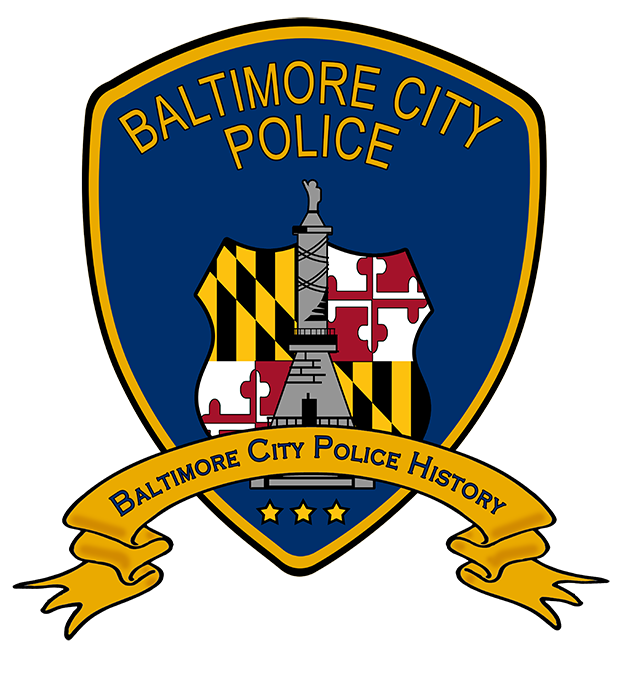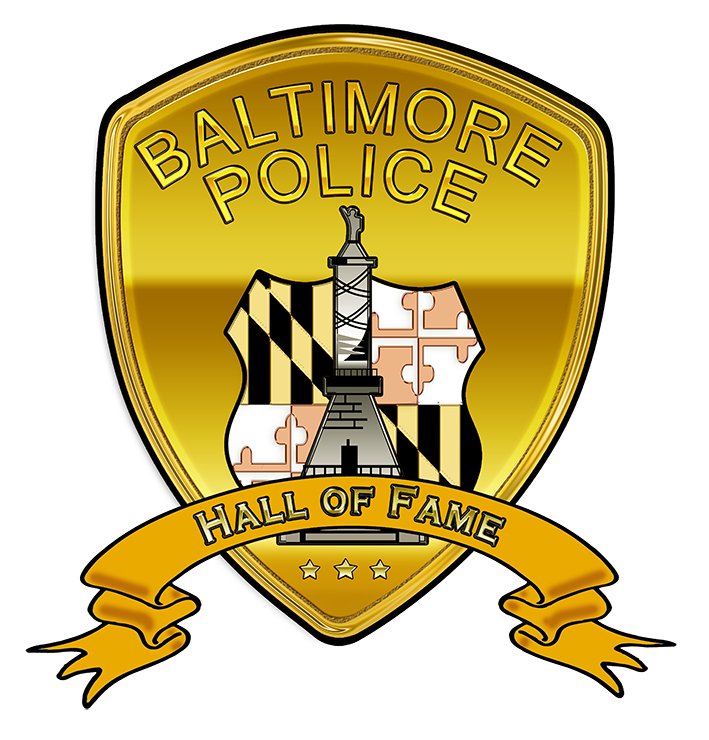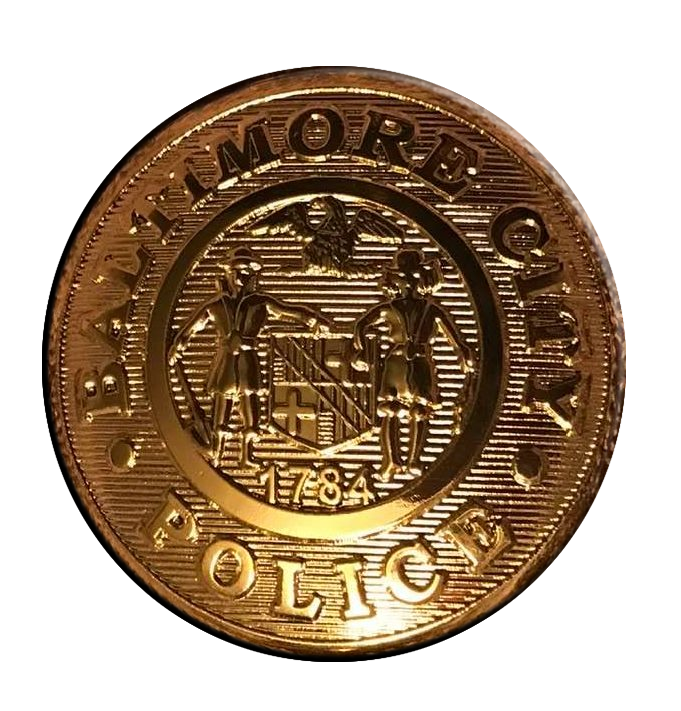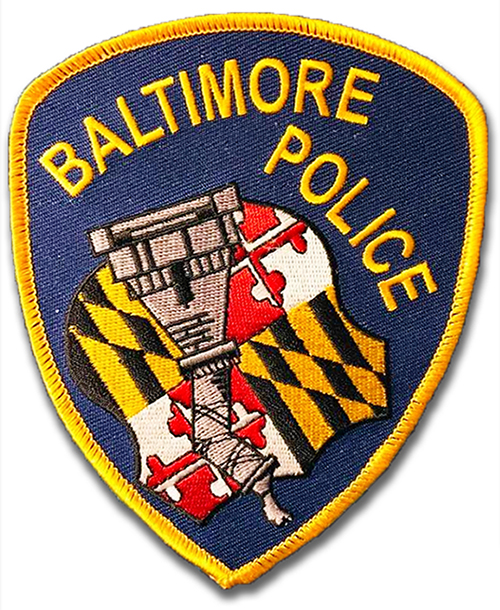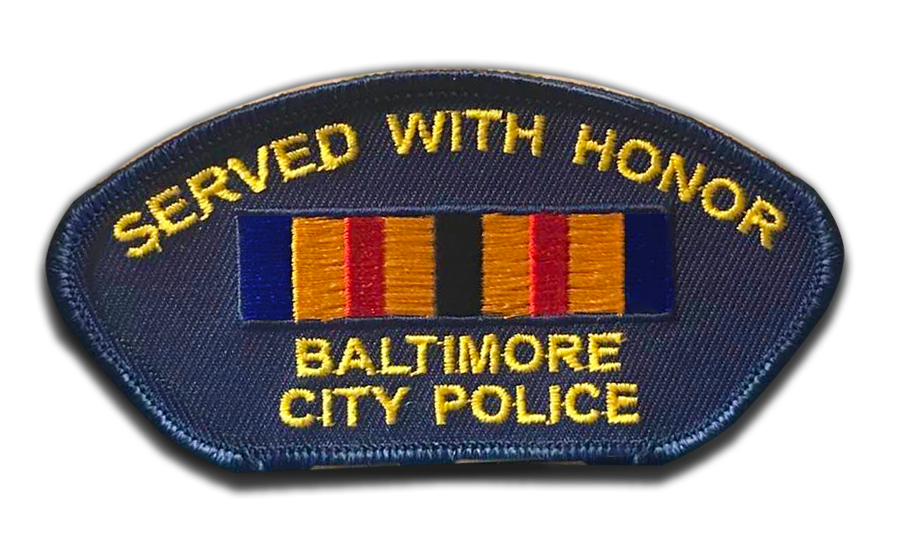When Baltimore’s Police Board Was Sent to Prison
25 June 1911
Written by Matthew Page Andrews
General Cadwallader was replaced in charge of what was essentially the military district of Annapolis and Baltimore in the early part of June 1861 by Maj. Gen. N. P. Banks. General Cadwallader, according to the extremists who were at the time pushing for the continuation of the war, was too indulgent with Baltimore's "disloyal" residents. They also stated that Baltimore was a "hotbed of treason" and that the majority of people there were sympathetic toward the South, if not actively prepared to overthrow the government. A second St. Bartholomew would immediately follow if the 5000 muskets currently bursting around Baltimore were removed, according to The New York Tribune, which was likely the most widely read newspaper at the time. Once, officers of a passing regiment forbade their soldiers from drinking any water that locals offered them out of concern that "Rebel" sympathizers might have tainted it on purpose. Such was Baltimore's national reputation as a result of the political press of the time.
One of the officers in the regular Army was General Cadwallader. Cadwallader found General Banks' decision to completely abolish civil law revolting, but Banks welcomed it. Gen. Banks used informants and spies after being given command in Baltimore to entrap "disloyal" civilians, taking note of individuals who were outspokenly opposing the war and coercing those suspected of harboring Southern sympathizers into sharing their views.
The Maryland legislature adjourned on June 22, 1861, in Frederick, after passing resolutions vehemently opposing the "military despotism" that had been ushered in in the state, declaring that no one's person or property was safe, no home was respected as sacred, and private correspondence was no longer sacred. Following this proclamation, vents moved quickly. Three months prior to the Baltimore mayor and a large number of other notable residents, Gen. Banks was gathering information and preparing to make arrests of citizens, starting with the lowest-ranking rider.
The younger generation, who are heavily impacted educationally by a significant influx from the northern states, is unaware that Baltimore, Maryland, was almost as warmly a southern metropolis as Richmond, Virginia, in 1860. It had a population of around 200,000, and the vast majority of its powerful residents supported the union up until the idea of coercing the South was floated. They either left Maryland to fight for the Confederate or were out of sympathy with an aggressive war against their southern neighbors when that subject was directly presented to them.
While opposing the war in the heat of April's excitement, Governor Hicks eventually saved himself by submitting completely to federal authority. The rest of the Maryland leaders were marked men, with a few notable exceptions. As an example of this, it should be noted that Chief Justice Taney told Mayor Brown in May 1861 that his [the mayor's] time would come and that his activities were then being closely watched because he was aware that his own arrest had been considered.
Following this explanation, it is simpler to follow and comprehend the events surrounding the arrests of George P. Kane, the most well-known of Baltimore's police marshals and later the city's mayor, as well as the arrest a few days following the news of the city's whole police board.
Remarkable Contrast and Point of View
The Sunday Sun of April 9 of this year hailed Marshall Kane's bravery and composure in defending the Massachusetts Regiment following the firing upon the citizens. He was the one who prevented the federal volunteers' detached companies from perhaps being alienated at the time. Even so, Marshall Kane opposed continuing the war, and the federal government would never pardon him for the telegrams he sent as part of one of numerous activities leading up to and soon following April 19th. The first was a request for information sent in the following words by a Philadelphia, Wilmington, and Baltimore railroad official: "Is it true, as claimed, that an attempt would be made to pass the volunteers from New York destined to war upon the South across your train today?"
This interpretation of what the call for federal troops was intended to accomplish differed so significantly from that of the federal authorities—at least in Baltimore—that it essentially amounted to evidence of treason against the US government. The federal government's language at this stage of the conflict is evident in Secretary Cameron's letter to Governor Hicks dated April 18, which asserted that illegal groups of Maryland residents were obstructing the movement of American troops through Maryland on their way to defend the capital. Marshall Kane also sent a message to Bradley T. Johnson asking for volunteers to aid Maryland in fending off beaters who had turned Baltimore's streets "red with blood." Kane was arrested and imprisoned as a result of these telegrams and his opposition to the use of military authority without approval from the police board. Under a black headline in 10-point type that was quite sensational in Baltimore at the time, the local paper's editor in chief and later a staff member of the Sun wrote this story about Kane's arrest on June 27.
The Arrest of Marshall Kane
The long-simmering plot against Baltimore has finally materialized, resulting in the eradication of all civil liberties and the establishment of a military despotism. Early this morning, a rumor that Marshall Kane had been apprehended by the troops and sent to Fort McHenry spread across our village, causing considerable anxiety. The confirmation of the story increased the enthusiasm, and throughout the morning, a sizable number of the marshal's acquaintances visited his office and the police commissioners' rooms eager to learn more. The realization of this act has stirred up a lot of emotion and practically all of our citizens' attention, who are gathered around every corner talking about it despite the fact that it has long been anticipated due to the threats made. The arrest took place this morning around 2:30 a.m. when a company of soldiers, made up of some Maryland volunteers from Camp Carol and some Pennsylvania Regiment soldiers stationed on Federal Hill, marched as quietly as they could from the federal camp to 136 St. Paul Street, the Marshall's home, with troops guarding every entrance. The marshal was asked to show up. He opened the door after coming down the stairs looking dapper and half-dressed when he was suddenly grabbed and dragged into a waiting carriage in front of the home. He was not told why he was being held, and he was also not allowed to speak to his wife or any other members of his family. When the military gathered around the carriage and one of the commanders sat down inside, he hastily made his way to Fort McHenry. It goes without saying that his wife and family were understandably extremely scared by his abrupt detention and worried that violence would be used against them. It took them a few hours before they learned of his temperament. “ The military took all the police they encountered and forced them to march with them as a measure of precaution against a rescue attempt for the marshal. One of Mr. John B. Egerton's neighbors was concerned by the noise as they drew up to his home and stooped to the door. He was placed in charge with them until Col. Kane's person was safe. The officer in charge told the cops who had been detained that they may now resume their duties when the troops arrived at Federal Hill. The announcement that General Andrew P. Banks was about to impose martial law and that he had appointed Col. John R. Kenley of the Maryland Volunteers as the provost marshal was posted on newspaper bulletins around 9 AM, which may have served to heighten the excitement generated by Marshall Kane's arrest. Col. Kenley called on the police commissioners at fifteen minutes before eleven o'clock and presented them with the following paper, declaring that they were now superseded in their role as such because he had previously been supposed to take full control of the police force. General Banks gave the following order on June 27, 1861: "Headquarters Department of Annapolis. I am hereby appointing you Provost Marshal in and for the city of Baltimore in accordance with instructions I received from the department of war at Washington on June 24, 1861, to Col. Kenley, commanding first Regiment, Maryland volunteers. You will start your duties right away at the city's police headquarters, and after informing the mayor of your appointment by reading him this order and the proclamation that is included with it, you will immediately start working with other officers in the police department to put the police law that the Maryland legislature has provided for the administration of the city of Baltimore into effect. "I am most humbly yours, etc.," said N. P. Banks, the commanding general of the Annapolis department. While denying the legitimacy of his [Col. Kenley's] action, the commissioners noted that they should offer no resistance to General Banks assuming control of the marshal's office despite their refusal to recognize General Banks' authority to act in this manner. They stated that they should file a written protest against this procedure. A meeting was conducted after inviting the mayor to the board, and in the meantime, Col. Kenley made his way to the marshal's office. There, he informed Deputy Marshal Gifford that he had arrived to assume command and invited the various captains of police to report to headquarters. The following order was subsequently issued and given to them: "Special Order number 1 "Office Provost Marshal, Baltimore, "June 27, 1861. "By order of Major-General Banks, commanding the Department of Annapolis, I assume intake commands of the police force of the city of Baltimore, the superintend, and to execute and cause to be executed the police law provided by the Maryland legislature for the government of the city of Baltimore, with the assistance of the subordinate officers of the police department. According to Col. J. R. Kenley's directive, the provost marshal of Baltimore is commanding the first Maryland Regiment. Col. Kenley requested verbally that the board call a meeting of all the captains of police to meet him at the marshal's office. Informing Col. Kenley that the board did not acknowledge the legitimacy of Gen. Banks' actions on the property, the president asked him to put his recent request in writing on behalf of the board. He retracted the request and declined to do so. After that, he said that he would be heading straight to the Marshal's Office. In response to a request from the board, the president and mayor went to the marshal's office and gave the deputy marshal orders to not interfere with Col. Kenley's actions and to hold off on taking any action until he had been informed of the board's opinions.

THE POLICE BOARD’S RESOLUTION OF PROTEST
The whole subject having been maturely considered, the following preamble and resolutions were unanimously adopted, viz.: “whereas, the laws of the state of Maryland gives a whole and exclusive control of the police force of the city of Baltimore to the board of police, organized and appointed by the Gen. assembly; and not only are the said board bound to exercise the powers in and to discharge the duties imposed upon them, but all other persons are positively prohibited, under heavy penalties, from interfering with them in so doing; and, “Whereas, there is no power given to the board to transfer the control over any portion of the police force to any person or persons whomever other than the officers of the police appointed by them, and pursuance of the express provisions of the law; and acting under their orders; and, “Whereas, by the orders of Maj. Gen. Banks, an officer of the United States Army, commanding in this city, the marshal of police has been arrested, the board of police superseded, and an officer of the Army has been appointed provost marshal and directed to assume the command and control of the police force of the city; therefore be it “Resolved, that this board do solemnly protest against the orders and proceedings above referred to of major – Gen. Banks as an arbitrary exercise of military power not warranted by any provision of the Constitution or laws of the United States or of the state of Maryland, but in derogation of all of them. “Resolved, that whilst the board, yielding to the force of circumstances, will do nothing to increase the present excitement or obstruct the execution of such measures as major – Gen. Banks may deem proper to take on his own responsibility for the preservation of the peace of the city of Baltimore and of public order, they cannot, consistently with their views of official duty and of obligation of their oath’s of office, recognize the right of any of the officers and men of the police force as such to receive orders or directions from any other authority than from this board. “Resolved, that in the opinion of the board the forcible suspension of their functions suspends at the same time the active operation of the police law and puts the officers and men off duty for the present, leaving them subject, however, to the rules and regulations of the service as to their personal conduct and deportment and to the orders which this board may see fit here after to issue when the present illegal suspension of their functions shall be removed. “Charles Howard, Pres., “William H. Gatchell, “Charles D. Hinks, “John W. Davis, “George William Brown, Mayor and ex- officio members of the board.”
DISBANDING OF POLICE FORCE
Considering that the laws of the state of Maryland give the board of police, organized and appointed by the General Assembly, a whole and exclusive control of the police force of the city of Baltimore; and not only are the said board bound to exercise the powers in and to discharge the duties imposed upon them, but all other persons are positively prohibited from doing so," the preamble and resolutions that follow were unanimously adopted. "Resolved, that this board do solemnly protest against the orders and proceedings above referred to by Major General Banks as an arbitrary exercise of military power not warranted by any provision of the Constitution or laws of the United States or the state of Maryland, but in derogation of all of them." Resolved, that while the board will submit to the force of circumstances and take no action to heighten the current commotion or obstruct the execution of any measures that major-general Banks may deem necessary to take on his own responsibility for the preservation of the peace in Baltimore and of public order, they are unable to do so in a way that is consistent with their views of official duty and the obligations of their oaths of office. In the board's opinion, the forcible suspension of their duties suspends the active enforcement of the police law at the same time as taking the officers and men off duty for the time being. They remain subject, however, to the service's rules and regulations regarding their conduct and demeanor as well as any orders that the board may subsequently issue when the current illegal suspension of their duties is lifted. George William Brown, Mayor, William H. Gatchell, Charles D. Hinks, John W. Davis, Charles Howard, President, and ex-officio board members.
HEADQUARTERS DEPARTMENT OF ANNAPOLIS FORT MCHENRY 1 JULY 1861.
Following the conclusion of their meeting, the police commissioners and the mayor sent a notification to the police captains of the various stations at 2 o'clock informing them of their decision to dissolve the force and giving them instructions on how to go about doing so. The men were subsequently called to the station house and informed that their employment as police officers had been terminated effective immediately. The board of police's refusal to comply with Gen. Banks' military orders swiftly and supinely caused the latter to become extremely irate. Baltimore was thereafter made aware of her complete helplessness and the futility of any civil rights-related protests, which were now at least nominally but undoubtedly actually suspended. As a result of this decision, the announcement of the police board's arrest and detention on General Banks' command stunned the city early on July 1st, 1861. Nearly all business was shut down, and groups of people congregated all over to talk about the news of the most recent incident, as it was known to be. The Pennsylvania Infantry under Col. Morehead made the arrests of the police commissioners early in the morning. At before 3 AM, the soldiers made their way to John W. Davis' house near Federal Hill, where they arrested him and transported him to Fort McHenry under guard. They then went to Charles D. Hanks' house on W. Lombard Street. Despite Mr. Hanks' deteriorating health, he was imprisoned and sent to the fort. The soldiers then proceeded to Charles Howard, the board president's home on Cathedral Street, where they detained both him and William H. Gatchell before transporting them to what Baltimoreans were now referring to as "the American Bastille." Any members of these commissioners' families who may raise suspicion were likewise temporarily detained. General Banks announced the arrests at 8 o'clock, providing an explanation that, in Judge Brown's words and later on, "did not explain":
“Nath P. Banks
“Major – General Commanding.”

Artillery and Troops in City Squares
An excerpt from a reliable historical account of military activity in and around Baltimore reads, "At an early hour this morning, the movements among the military indicated something new for the "defense of the capital," as infantry and artillery were hastily moved from the various camps into the city. As three companies of Col. Pratt's 20th New York Regiment were marched inside these structures and are currently maintaining a rigorous guard over them, a part of Col. Cook's Boston light artillery were stationed in exchange Place, fronting the customhouse and post office on Lombard Street. No one is allowed to enter the customs building unless he can prove that he is there on business, and everyone traveling to or from the post office must follow the guards' authorized route while dodging their bayonets. Col. Lyle's Regiment and the rest of the Boston artillery were also stationed in Monument Square, however, it is unclear what their specific roles were at the time.
"The remaining regiments in and around the city were all on guard at various spots around the steamboat words and at other sites. A unit of the 20th New York Regiment has also been stationed in front of St. Patrick's Church on Broadway. The 13th New York Regiment, under the command of Col. Abel Smith, dispersed its camp this morning at 6 a.m., marched to McKim's Hill on York Road, and set up camp there. The officers took control of the ancient mansion as their headquarters. Soon, squads of this Regiment were dispersed throughout the eighth Ward of the "rebels," looking for weapons. Though the soldiers claim that the statements made by union men to Gen. Banks indicating that an organized movement was about to be made to attack several camps and Fort McHenry and that they had been ordered in to prevent it and to protect the "loyalist" were the cause of the large military demonstration, there has been much speculation regarding its cause. ”
At the time, the sight of troops from other states restraining the citizens of Baltimore in this way upset Marylanders descended from colonial forebears of revolutionary records so much that further hundreds left the city for the South. Today's well-known Maryland Club members and others have told the writer that the Boston Artillery's presence in Monument Square on July 1, 1861, as they were making their way to work, so sparked their ire that they immediately prepared to leave and go see if they could express it to the Southern Confederacy's armies.

Staff
For additional details on this topic, including Abraham Lincoln’s possible role in the arrest of Marshall Kane and the implementation of martial law in Baltimore City, please follow the provided link for an extensive study. Abraham Lincoln Crushes Civil Liberties in Maryland (baltimorepolicemuseum.com)

From 27 June 1861 to 29 March, 1862 - (Under the control of the United States military authorities), Baltimore's police commissioners were appointed by the military authorities - Columbus O'Donnell, Archibald Sterling Jr., Thomas Kelso, John R Kelso, John W Randolph, Peter Sauerwein, John B Seidenstricker, Joseph Roberts, and Michael Warner. Our newly sworn police officers at the time were recognized by a simple, "Pink Ribbon" worn on their left lapel, and the, "Espantoon" carried by Baltimore police, Other than those two identifiers, a uniform had not yet been selected, so they dressed in civilian attire.

POLICE INFORMATION
If you have copies of: your Baltimore Police Department Class Photo, Pictures of our Officers, Vehicles, Equipment, Newspaper Articles relating to our department and or officers, Old Departmental Newsletters, Lookouts, Wanted Posters, and or Brochures. Information on Deceased Officers and anything that may help Preserve the History and Proud Traditions of this agency. Please contact Retired Detective Kenny Driscoll.
This email address is being protected from spambots. You need JavaScript enabled to view it.

NOTICE
How to Dispose of Old Police Items
Please contact Det. Ret. Kenny Driscoll if you have any pictures of you or your family members and wish them remembered here on this tribute site to Honor the fine men and women who have served with Honor and Distinction at the Baltimore Police Department. Anyone with information, photographs, memorabilia, or other "Baltimore City Police" items can contact Ret. Det. Kenny Driscoll at This email address is being protected from spambots. You need JavaScript enabled to view it. follow us on Twitter @BaltoPoliceHist or like us on Facebook or mail pics to 8138 Dundalk Ave. Baltimore Md. 21222
Copyright © 2002 Baltimore City Police History - Ret Det Kenny Driscoll

